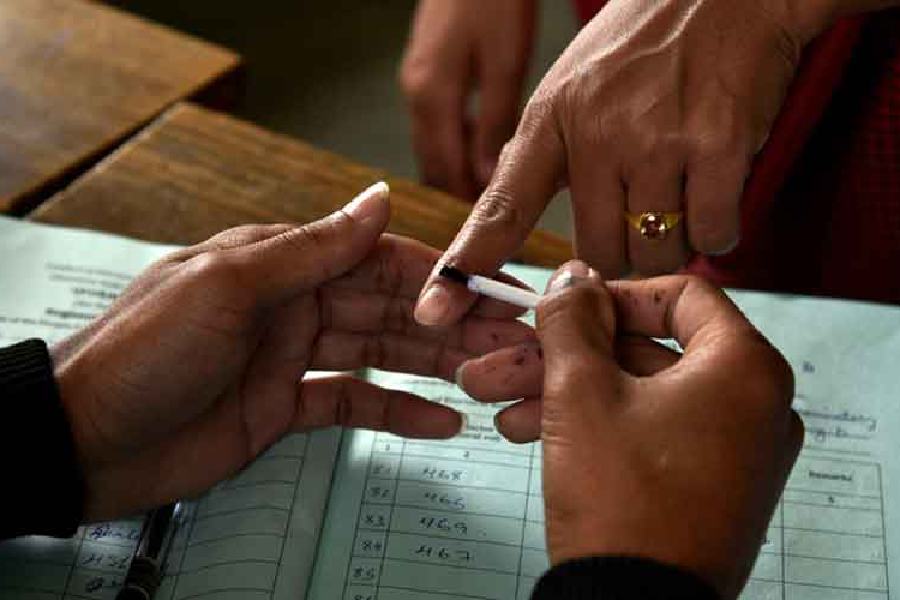Bengal, along with Bihar and Uttar Pradesh, will vote in every leg of the seven-phase Lok Sabha polls that will begin on April 19 and continue till June 1, the longest stretch of parliamentary polls that the state has ever witnessed.
Along with Bihar (40 seats) and Uttar Pradesh (80 seats), Bengal's contest for the 42 parliamentary seats (see chart), involving 7.6 crore voters, will stagger over 44 days with the two Calcutta seats — South and North — and those on the city's fringes — Jadavpur and Dum Dum — going to the polls on June 1.
The counting will be held on June 4, chief election commissioner Rajiv Kumar announced in New Delhi on Saturday.
Although the number of phases for polling in Bengal matches the number of legs required to complete the process in the 2019 Lok Sabha elections, the count is one less than the eight-phase polling in the state's 2021 Assembly elections.
The Lok Sabha polls in Bengal had been completed in five phases in 2014, while the 2016 Assembly polls required six legs.
While preparing the schedule for the state, the commission adhered to its customary north-to-south polling sequence, with Cooch Behar, Alipurduar, and Jalpaiguri going to the polls in the initial phase on April 19, followed by elections in three constituencies in north Bengal, including Darjeeling, Raiganj, and Balurghat, in the second phase on April 26 and the constituencies down south going to the polls in the later phases.
The Election Commission of India also announced on Saturday that voting for the bypolls for two Assembly seats — Bhagabangola and Baranagar — in Bengal would be held on May 7 and June 1, along with polling in the respective parliamentary constituencies.
Sources in the Election Commission said stretching out the polls in seven phases in Bengal was a deliberate move as the poll panel was committed to ensuring elections with violence. The sources added that incidents of post-poll violence in the immediate aftermath of the 2021 Assembly election worked on the minds of the election commissioners while deciding the seven-phase schedule for Bengal.
While announcing the poll schedule in New Delhi, Kumar emphasised that the commission was resolute about its zero tolerance to any kind of violence during the elections.
“We have already told that district administrative heads like district magistrates and the police superintendents will be held responsible for any kind of violence. We have also asked them to open a control room in every district,” Kumar said.
Sources in the commission indicated that there would be a deployment of 250 companies of central forces in the initial two phases, with 920 companies currently commissioned, slightly fewer than the 1,040 companies requisitioned in the last Assembly polls. Additionally, the commission has already deployed 150 companies to maintain peace in the locality.
“We are fully prepared to conduct the election,” Bengal's chief electoral officer Aariz Aftab
According to political observers, there is a substantial increase in constituencies from the fourth phase onwards. In the fourth phase, eight parliamentary constituencies will vote, followed by seven constituencies in the fifth phase. The number of constituencies going to the polls in the sixth and seventh phases will be eight and nine, respectively.
“The commission is very cautious while conducting elections in central and south Bengal because of the history of poll-related violence in these areas. So, the commission wants to mobilise more forces in these phases. As elections will be over in most states, it will be easier for the commission to deploy more forces,” said a political observer.











